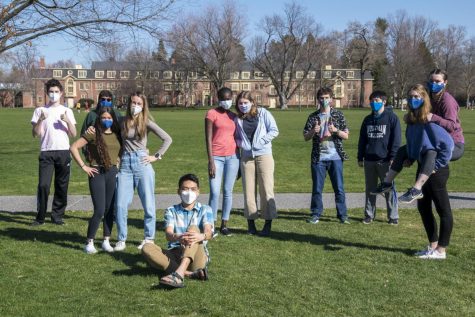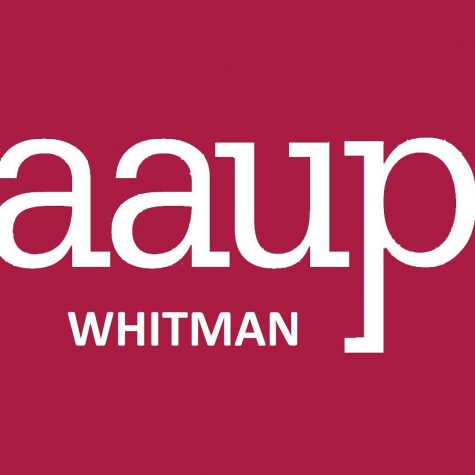GSI Year-in Review
May 4, 2017
On October 21, 2015, then Provost and Dean of Faculty Pat Spencer announced that faculty would not be receiving course releases for their participation in the Global Studies Initiative. The decision effectively suspended the program while placing it under external review. Over the past year a panel chaired by Professor Laura McGrane of Haverford College has met with students, faculty and administration involved in the initiative. Reviewers have completed their report, leaving their findings and the future of the program in the hands of the college.
The Global Studies Initiative (GSI) was instituted in 2008, initially funded by a three year, $345,000 grant from the Mellon foundation. Inspired by the interdisciplinary programs of other colleges, 27 Whitman professors collaborated to craft and submit a grant proposal, aspiring to infuse the curriculum with a greater global awareness. Since then, the burden of financial support—and with it, control of the program—has shifted to the college.
The act of evaluation itself is nothing abnormal; it keeps the program in check and ensures that development is positively directed. “All of our programs undergo a review process periodically,” Provost Tipton wrote in an email.
However, it was not so much the review itself that sparked the ire of concerned parties, rather the circumstances under which it arose.
“It not only runs against common sense, but I don’t think there’s any precedent for that,” Associate Professor of History Elyse Semerdjian said of the suspension of the program and its course releases.
Furthermore, both professors and students expressed disappointment at the opaque, unilateral nature of the decision.
“We were told that in some ways that we were squandering resources, but we weren’t told how. We weren’t given any numbers to tell us why the program needed to be cancelled,” Semerdjian continued, “The faculty went ballistic, I’m trying to remember how many letters went out to the faculty listserv, but it might have been close to 40, demanding a reason for this, because it was a faculty-created program and as far I understand at Whitman college, when I read the faculty code, it tells me that faculty are in charge of curricular matters.”
The inundation of support for the may have stemmed from a sense of betrayal. A few months prior to the program’s suspension, the college announced the completion of its successful “Now Is The Time Campaign,” which listed among its primary goals intents to, “Prepare students to lead in a globally connected world,” and to “Broaden and deepen the curriculum through strategic additions to the faculty.”
The timing of the two announcements, when combined with the loss of academic programs and the news that 15 faculty positions will be cut through attrition, has infuriated faculty and students alike.
However, the program appears far from far death. Both the current director of the initiative, Associate Professor of History and Director of Asian and Middle Eastern Studies Brian Dott, and future director, Associate Professor of Politics Aaron Bobrow-Strain, outlined their ambitions for the program’s future, suggesting a healthy level of faith in its existence.
“In the idea stage at this point… [is] creating global studies student fellows, so students who would be engaging in a year long seminar and they would get the title of global studies seminar and the stipend and be able to be in this really close engagement with faculty over the course of a year around a specific topic… like climate change, you know some topic of global importance that crosses the different divisions,” Bobrow-Strain said.
Increasing student involvement seems to be a priority in the reshaping of the program, with both professors citing it as a goal.
“In the past, the Global Studies Initiative has held panels with power and privilege and we’d certainly like to continue that, and one way to maybe link that even better would be through students in the global studies seminar participating in a particular panel for power and privilege”, Dott said.
As a precursor to their hopes, Both Dott and Bobrow-Strain were quick to note that they were remained simply that—hopes and ideas, far from finalized. Currently, they are crafting a response to the external reviewers’ report and beginning to parse out the logistics of their aims.
Finding time is perhaps the thorniest complication at hand. Previously, Professors relied upon course releases to sufficiently slacken their schedules. Administration, however, cited the absences created by such releases as a reason for their suspension.
“It is something that we’re still trying to hash out… Faculty have always given their sweat and blood to the college by teaching overloads, running things like the U.S.-Mexico border program that I did without any teaching credit for it. Faculty really give a lot to the college that isn’t compensated for in terms of the time… and the Global Studies program was unique because it was one of the only programs where faculty’s participation in this kind of overload work of developing global studies curriculum was actually credited… So, that’s something that would be hard to lose,” Bobrow-Strain said.







